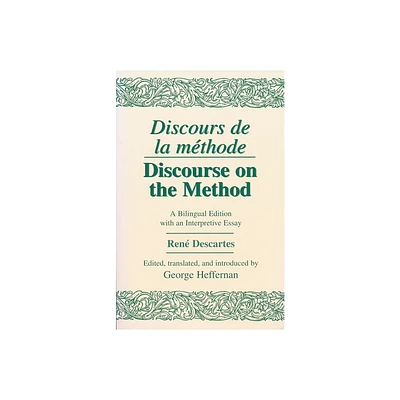Home
Descartes's Method: the Formation of Subject Science
Loading Inventory...
Barnes and Noble
Descartes's Method: the Formation of Subject Science
Current price: $130.00


Barnes and Noble
Descartes's Method: the Formation of Subject Science
Current price: $130.00
Loading Inventory...
Size: Hardcover
*Product Information may vary - to confirm product availability, pricing, and additional information please contact Barnes and Noble
Descartes's Method
develops an ontological interpretation of Descartes's method as a dynamic and, within limits, differentiable problem-solving cognitive disposition or
habitus
, which can be actualized or applied to different problems in various ways, depending on the nature of the problem. Parts I-II develop the foundations of an habitual interpretation of Descartes's method, while Parts III-V demonstrate the fruits of such an interpretation in metaphysics, natural philosophy, and mathematics. The first book to draw on the recently discovered Cambridge manuscript of Descartes's
Rules for the Direction of the Mind
, Descartes's Method concretely demonstrates the efficacy of Descartes's method in the sciences and the underlying unity of Descartes's method from
Rules for the Direction of the Mind to Principles of Philosophy
(1644).
develops an ontological interpretation of Descartes's method as a dynamic and, within limits, differentiable problem-solving cognitive disposition or
habitus
, which can be actualized or applied to different problems in various ways, depending on the nature of the problem. Parts I-II develop the foundations of an habitual interpretation of Descartes's method, while Parts III-V demonstrate the fruits of such an interpretation in metaphysics, natural philosophy, and mathematics. The first book to draw on the recently discovered Cambridge manuscript of Descartes's
Rules for the Direction of the Mind
, Descartes's Method concretely demonstrates the efficacy of Descartes's method in the sciences and the underlying unity of Descartes's method from
Rules for the Direction of the Mind to Principles of Philosophy
(1644).


















